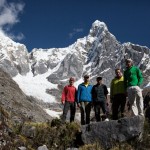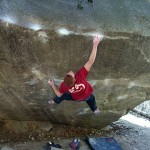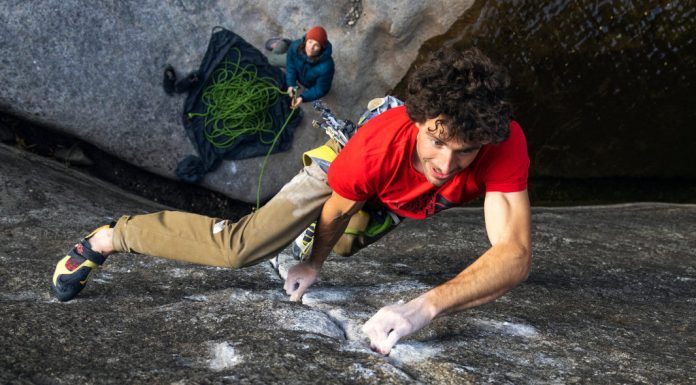March 2nd – Scottish Executive “The Scottish Executive is not at present recommending the postponement or cancellation of any sporting event. Any decisions to do so are a matter for the governing bodies of sport who should apply a common-sense approach which is proportionate to a realistic appraisal of the risk involved. As regards outdoor sports, our advice both to participants and to those considering attending any organised event is the same as the advice being given to the general public i.e. keep away from livestock farms and places where livestock are roaming freely. This means, for example, that it would be preferable to avoid walking in areas where sheep graze freely, or for anglers to avoid crossing such land when accessing rivers. On the other hand, there is no reason why – for example – skiing within recognised ski centres should be stopped.”The issues within confirmed infected areas are rather different. Here it can be expected that the local authorities and/or the veterinary inspectors will prohibit access to substantial areas of land normally open to the public. Within infected areas the strong advice of the Scottish Executive is that outdoor sporting events should be postponed or cancelled. In particular, much of the southern borders and Dumfries-shire and Kirkcudbrightshire are now an infected area because there are a number of confirmed infected farms relatively close together. “People travelling from farms to participate in or attend any sporting event should follow the standard advice on disinfection procedures. Other people should take sensible precautions (i.e. to disinfect footwear) if they live near an infected farm.”Mountaineering Council of Scotland issued the following statement on the 3rd of March:There have been four confirmed cases of Foot and Mouth Disease in south west Scotland in the last few days. The total number throughout the UK is currently over 50. Although the disease crossing the Scottish border looked inevitable this week, this is still devastating news, and there is clearly the possibility of the epidemic spreading further. The sporadic spread of the disease increases the chances that people travelling to the mountains could unwittingly travel through an infected area. The two main road routes from England to Scotland pass close to the infected areas in Northumberland and Lockerbie, and suspected cases are being investigated in the Scottish central belt.Our advice at the current time is to exercise caution and refrain from going to the mountains until the situation stabilises. We are, however, extremely concerned for the impacts on the wider rural economy, and particularly for the tourism and outdoor activity related businesses that are already starting to suffer. Accommodation providers, shopkeepers, instructors and restaurant owners depend on visitors to their areas, and March is one of the busiest months of the year. A crisis in the farming industry is leading to a crisis in the tourism industry, and this must be recognised by The Scottish Executive.We are alarmed by the conflicting advice being issued by The Scottish Executive that asks walkers and climbers to refrain from going to the mountains while clearing others to travel freely, to play golf, to go skiing, and watch football and rugby. This is not equitable and must be addressed.We are anxious to act responsibly and have supported widespread restriction of access as part of an initial comprehensive control process. The Executive are now introducing a system of controlled livestock movement and this seems an appropriate time to assess the scientific evidence and determine whether the current blanket restriction of access is necessary and consistent.Announcements were made throughout this week that access to many mountains is being discouraged as a precaution against the spread of the disease. Scottish Natural Heritage announced that all of Scotland´s Nature Reserves are closed to the public until further notice. This includes mountains such as Stac Pollaidh, Ben Wyvis, Beinn Eighe, Creag Meagaidh and parts of the Cairngorms. The National Trust for Scotland announced that they are asking people not to visit their mountain properties, including Glencoe, Ben Lawers, Kintail, Torridon and the Arran mountains.The John Muir Trust have asked mountaineers to stay away from their mountain properties, which include Ben Nevis and Schiehallion, and Forest Enterprise have asked people to stay away from their land. Anyone who does head to the mountains over the next few days will have to assess the situation when they arrive, but should not be surprised if efforts are made to restrict their access. The MCofS is, for the time being, asking mountaineers to respect any closures or restrictions that are in place during this current difficult period. It is a very traumatic time for farmers and others whose livelihoods are in real jeopardy and confrontation will help no-one.The people who live in the Scottish countryside are vital to its future and we should help and support them where we can. Further information may become available over the next few days if the problem gets worse or starts to recede. We recommend anyone, especially if away from home for a few days, to remain aware of the situation as the news unfolds in the media. We will give further updates when possible. Although the disease has mainly affected pigs so far, foot and mouth is a disease that affects all cloven hooved animals and cattle and sheep have been infected in this outbreak. The disease affects pigs, cattle, sheep, deer, goats, and even elephants. People, dogs and horses cannot contract foot and mouth, but they can carry the disease. Another risk posed by people and dogs is of dispersing wildlife that may be infected by the disease. Dogs that are not under proper control are a problem at any time, but during a period like this they present an even greater threat. Some estates and farms have made it known to walkers that they do not welcome dogs at any time, but over the next few days there is likely to be a greater feeling against dogs.One possible source of disease in farm stock is them being fed on scraps of food by people, and whilst children especially find it tempting, it is good practice to avoid giving food to animals.In view of the above information, we are giving the following advice. If you do go outdoors, even for a short walk: 1. Avoid all contact with farm livestock and wild animals.2. Avoid routes through farmyards and beside farm buildings containing animals.3. Dog owners will need to walk their dogs over the next few days, but should take extra care with their choice of route.4. Disinfect your boots before and after going out.5. Never feed farm animals or wild animals (except garden birds and hedgehogs).6. Have consideration to where you park your vehicle. Check in advance if you plan to use a car park or lay-by near a farm.
- Home
- News
- Videos
- Fotos
- Klettergebiete
- Unternehmen & Produkte
- Themen
- Themen beginnend mit 0-9
- Themen beginnend mit A
- Themen beginnend mit B
- Themen beginnend mit C
- Themen beginnend mit D
- Themen beginnend mit E
- Themen beginnend mit F
- Themen beginnend mit G
- Themen beginnend mit H
- Themen beginnend mit I
- Themen beginnend mit J
- Themen beginnend mit K
- Themen beginnend mit L
- Themen beginnend mit M
- Themen beginnend mit N
- Themen beginnend mit O
- Themen beginnend mit P
- Themen beginnend mit Q
- Themen beginnend mit R
- Themen beginnend mit S
- Themen beginnend mit T
- Themen beginnend mit U
- Themen beginnend mit V
- Themen beginnend mit W
- Themen beginnend mit X
- Themen beginnend mit Y
- Themen beginnend mit Z
- Routendatenbank
Climbing.de ist eine der ältesten deutschsprachigen Bergsportseiten im Internet.
Seit 1998 präsentiert Inhaber Martin Joisten, dessen Texte und Bilder in zahlreichen nationalen und internationalen Publikationen zu finden sind, aktuelle Informationen aus der Welt des Bergsports.
Seit 1998 präsentiert Inhaber Martin Joisten, dessen Texte und Bilder in zahlreichen nationalen und internationalen Publikationen zu finden sind, aktuelle Informationen aus der Welt des Bergsports.
Kontaktieren Sie uns: info@climbing.de
© Copyright 1998 - 2022 Climbing.de by Martin Joisten


![[VIDEO] Alexander Megos: URSUS | The days after the send URSUS | The days after the send (c) Alexander Megos](https://www.climbing.de/wp-content/uploads/2024/03/youtube_WCZVR9-tZTc-218x150.jpg)

![[VIDEO] Stefano Ghisolfi: ALL my secrets about ENDURANCE Stefano Ghisolfi: ALL my secrets about ENDURANCE (c) Stefano Ghisolfi](https://www.climbing.de/wp-content/uploads/2024/03/youtube_xlQ2OreHL60-218x150.jpg)
![[VIDEO] THE FULL JOURNEY 9B FA by Alexander Megos THE FULL JOURNEY 9B FA by Alexander Megos (c) Alexander Megos](https://www.climbing.de/wp-content/uploads/2022/12/youtube_QwjykRehg7M-218x150.jpg)
![[VIDEO] MEGATRON V17 MEGATRON V17 (c) mellow](https://www.climbing.de/wp-content/uploads/2022/12/youtube_f_MniTA8MYU-218x150.jpg)
![[VIDEO] Moulin Rouge (7b) Free Solo | Jonas Hainz Moulin Rouge - Free Solo (c) Jonas Hainz](https://www.climbing.de/wp-content/uploads/2022/10/youtube_UQs4KNRBHss-218x150.jpg)












